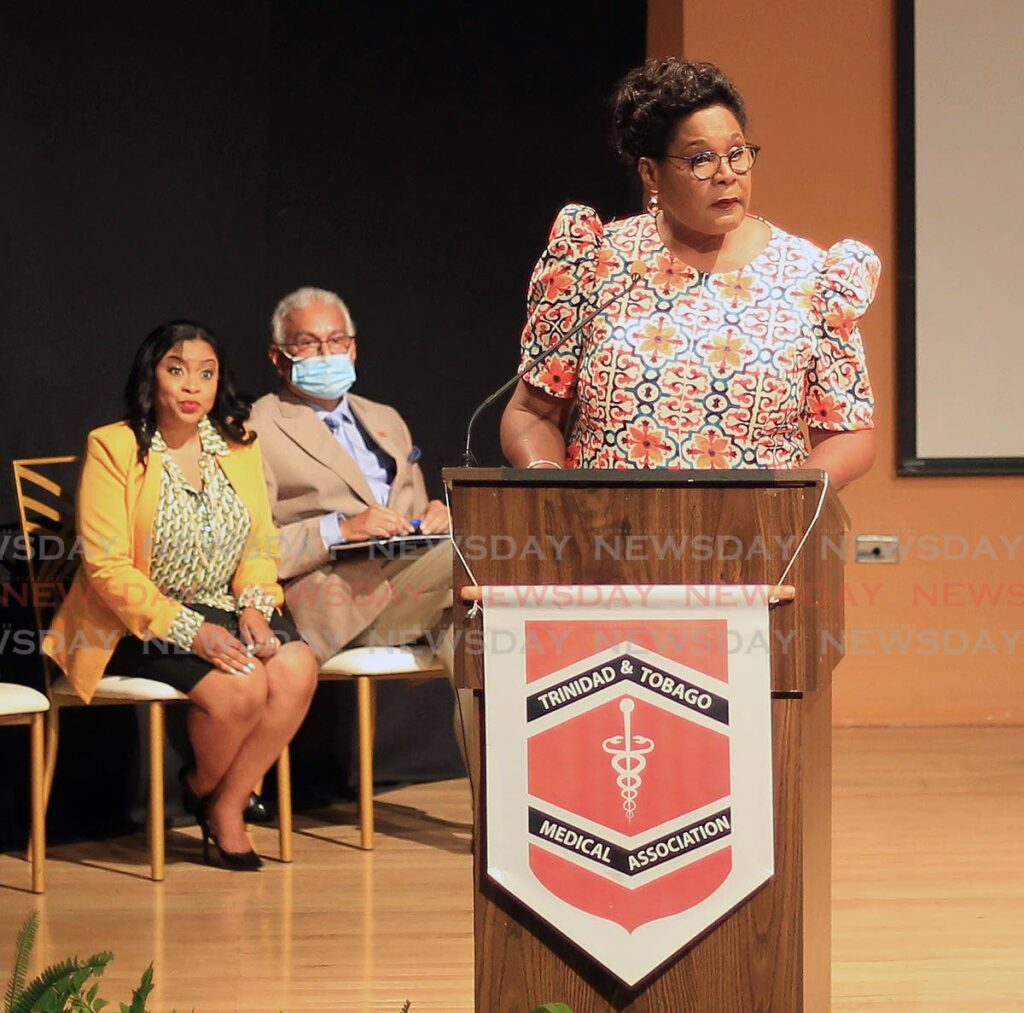President calls for visionary leadership in medical fraternity

President Paula-Mae Weekes says visionary leadership in the medical fraternity is needed now, especially as covid19 disrupted and dislocated the leadership in the country’s public health sector.
Giving the feature address at the UWI and TT Medical Association Presidential Symposium on Visionary Leadership in Medicine at UWI’s Learning Resource Centre, St Augustine Campus on Saturday, she said covid19 forced organisations to shift their operations towards digital advancements and inventive thinking.
“The recent past has underscored the critical importance of carefully and deliberately building resilient, responsive and flexible health and social systems.
“Setbacks occasioned by the long arm of the pandemic will be felt for years to come, but we can attempt to strike some balance by being alert to and heeding the cry for change.”
She said there were issues in the system before the pandemic, such as the prevalence of non-communicable diseases, shortages of specialists and nurses, lengthy wait times at hospitals, unnecessarily complex administrative processes, unacceptable working conditions, and unavailability of critical equipment.
But as access to healthcare was a key part to the development of the economy and society, it was important strengthen and upgrade the country’s systems. She said more finances, staff, training, and innovation was necessary to do so but, “without consistent, effective leadership, they will never be realised.”
Therefore, in this time of transition, anyone who could be the key to strategic change could be a visionary leader.
“At those various levels of leadership within our medical institutions and services, we must perceive and seize the opportunities for innovation and institutional strengthening presented by breakthroughs in technology and evolving best practices.”
She hoped the symposium would be “an incubator of talent and skill” where stakeholders would advance the country’s health agenda, foster inventive solutions to problems and gaps, and be the start of further research and cooperation.
Dr Erica Wheeler, the representative of PAHO/WHO in TT said during the pandemic, public health leadership was put to the test and was continually under scrutiny.
“We have to be diplomats, understand complex technical problems, we have to listen to differing and sometimes opposing views, and still distil them and do what is best in the interest of all people everywhere. A huge challenge.”
She said WHO was highly criticised for many of its participation and decisions but its members had to read the situation, the context, and adapt.
“It was the first time in the world, in history, of such a pandemic, that we have had to bring people from all over the world together to actually help provide vaccines, two billion, in two years.”
She said it also had to provide leadership throughout the pandemic, work with the ministry, help get personal protective equipment, vaccines, antigen tests, provide logistics for all donations of vaccines and equipment, train lab staff and more.
It also had to manage the “infodemic.” She said it was not prepared to handle the amount of misinformation that came out about covid19 and the vaccines, and had to be careful about how it delivered its messages.
And all had to be done in a short period of time.
Also speaking at the event was Health Minister Terrence Deyalsingh who thanked Weekes for her five years of service as President and wished her the best in her future endeavours.


Comments
"President calls for visionary leadership in medical fraternity"